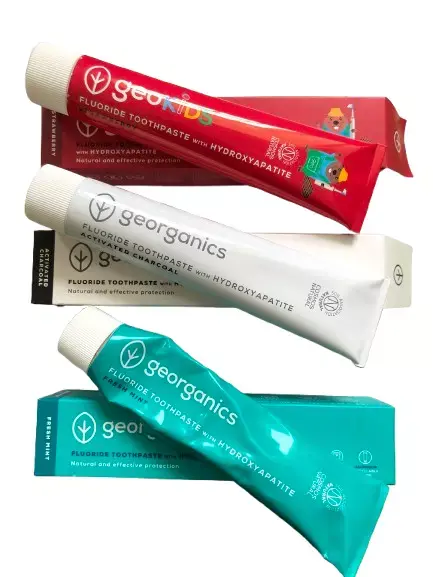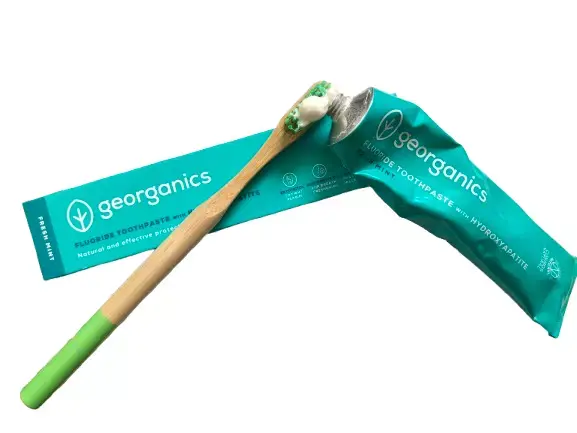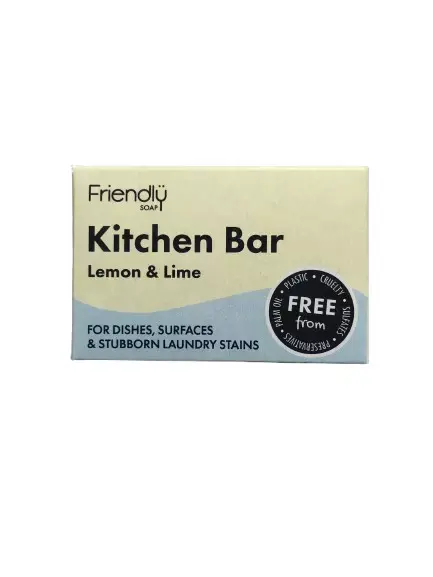
Plastic plastic everywhere, on your skin and in your hair. But no more! Wash your hair the plastic-free way with a solid shampoo bar. No plastic packaging and palm-oil free. Switching to a shampoo bar is one of the easiest ways to cut down on your plastic consumption, so why not start here?
Fragrance-free for those with sensitive scalps and for those who are allergic or want to avoid using essential oils.
For best results keep it in a soap dish to let it dry out between uses. Top Tip: Cut off a section of your shampoo bar at a time to make it more manageable to use. It will also last longer as you won’t be getting the whole bar wet!
Fragrance-Free Shampoo Bar
The many, many plastic bottles and containers of shampoo. Just think of the shampoo aisle in the supermarket. All that choice of haircare packaged in so much plastic. Stuff of nightmares honestly.
No plastic packaging! Just a cardboard box. It also contains no palm oil, and has only a few ingredients unlike most mass-produced shampoo. Why do you need a list of 20 odd ingredients to clean your hair? You don’t. It’s ridiculous. Much better for your hair if you use a shampoo bar, as conventional shampoo cleans your hair by stripping it of all the natural oils your hair produces.
‘But…isn’t that a good thing? I don’t want greasy hair!’ I hear you cry. Well, unfortunately, by stripping your hair of its oils it loses its ability to clean itself. Commercial shampoo dries your hair out, and so your hair starts to excessively produce oil to try and make it healthy again. Which leads to the greaseball look we all try desperately to avoid. Shampoo bars tend to forgo the oil stripping chemicals and work with your hair to clean it. Leading to healthier, shinier, lustrous locks!
Warning: There does tend to be an adjustment period for shampoo bars, as your hair needs to get used to the freedom to regulate itself again. How long this will last is dependent on your hair, it could be a week to a month. If you wash your hair everyday it’s probably going to take longer to get used to.
If the water in your area is hard, unfortunately, these particular shampoo bars don’t tend to work amazingly. Hard water makes it much more difficult to rinse the lather out of your hair, leaving it feeling kind of waxy*. If the water is soft you shouldn’t have that issue. It’s better you know now, so that you have an idea of whether this bar will work for you. Although who knows, hard water might not be a problem for some people’s hair. Here is a link to find out - https://www.bristan.com/hard-water-map
*I have this issue, it’s rather annoying. An apple cider vinegar rinse after using the shampoo bar helps in the hard water situation. If you are in the same boat as me, a shampoo bar with the ingredients that strip the oil from your hair will work, so try the other shampoo bars we sell by Little Blue Hen – they are in the shape of a heart so easy to distinguish from this shampoo bar.
Shampoo bars last for a long time, one 95g bar is equivalent to around three bottles of normal shampoo. So even though it is more expensive to buy a bar than a bottle of shampoo, it lasts much longer so you have to buy less. By buying one shampoo bar you are saving three plastic bottles from being used. Think what an effect that would have if everyone used a shampoo bar!
Shampoo bars themselves tend to be quite expensive. The average is around £4.50 to £7.50 (The one I used to buy from that well-known, powerful-smelling high street shop was £6.95.) At £3.50 this bar is well below the mark. The Friendly Soap Company’s prices are very reasonable in comparison to most other handmade soap companies which is why I wanted to work with them. If a shampoo bar is equivalent to three shampoo bottles, then that’s just over £1 a bottle, pretty good price then, right? Worth it.
What is it made from?
INGREDIENTS: Sodium Cocoate (Coconut Oil), Sodium Olivate (Olive Oil), Aqua (Water), Sodium Castorate (Castor Oil), Argania Spinosa (Argan) Kernal Oil.
That’s it. Five ingredients, one of which is water. If that’s not pure and natural I don’t know what is. Keeping your hair clean doesn’t have to be complicated after all.
Where does it come from?
Made in the UK.
Is it sustainable and environmentally friendly?
Olive Oil - does have some environmental issues within its production, mainly due to intensive farming methods. However, a lot of olive oil farming is still done by small scale farmers using traditional methods, which is much better environmentally.
Castor oil - is used as a replacement for petroleum-based substances in many products. It is a much greener alternative as it is renewable, unlike oil.
Coconut oil - seems to be ok.
Argan Oil – The argan tree grows nearly exclusively in Morocco, but neighbouring Algeria, as well as Israel, have also started growing this crop as its popularity has increased. Very specific conditions are needed to successfully cultivate the argan tree, so there is not much scope for it to be grown outside of these areas, which could become a problem as demand is quite high and growing. The argan tree helps stave off the encroaching desert, stops soil erosion and protects water resources, so it is a very important feature of Southern Morocco, which has been made a biosphere reserve by UNESCO, who recognise the importance of this plant. The argan tree was nearing extinction, but demand for argan oil has actually helped save this tree from its vulnerable status. This doesn’t mean it shouldn’t be carefully looked after though, as its sustainability needs to be ensured and that is not guaranteed without careful monitoring of this useful tree. Only women are involved in producing argan oil, and the rising demand for this product has led to the formation of women’s co-operatives which make sure the women are paid fairly for their work. This has greatly benefitted the local Berber women and their economic prosperity has had the happy knock-on effect of improving levels of girl’s education in the area as they can afford to send their daughters to school. Although this, of course, is not true for all of the women working in the industry, as there is still some worker exploitation apparent, unfortunately, as not all employers are interested in supporting their workers. Because argan is a desert plant, its most useful properties are as a humectant and emollient. Which means it has the ability to absorb and retain moisture. It also has a very high vitamin E content. This is why it is used so widely in beauty products.
How about ethical?
Made in the UK by a small handmade soap business, so ethically we are all good here. They are a living wage employer and have the ‘Fair Tax Mark’ certification.
Extra good stuff:
Vegan, not tested on animals, free from palm oil and known skin irritants such as Sodium Lauryl Sulphate’s (foaming agent) and parabens (preservatives). Ooo and this one has an Ethical Consumer ‘Best Buy’ seal of approval. Get in!
Conclusion –
Shampoo with no plastic, palm oil and good ingredients? What more could you want!






























